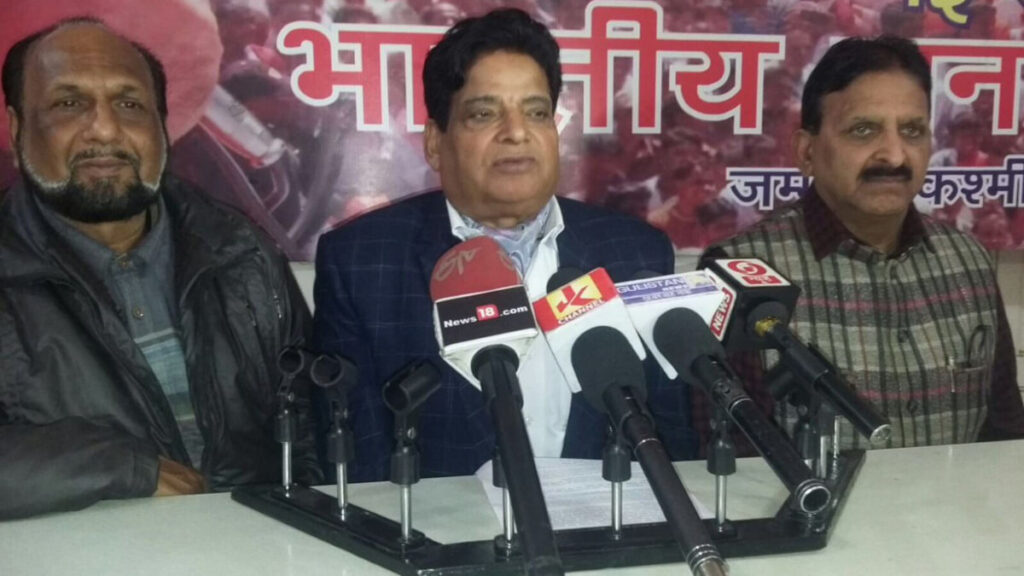Significant Setback for BJP Before Jammu Kashmir Elections: Chandra Mohan Sharma Resigns
The political landscape of Jammu and Kashmir is witnessing significant turmoil as senior Bharatiya Janata Party (BJP) leader Chandra Mohan Sharma resigned from the party just before the long-awaited assembly elections. This sudden exit highlights the growing dissatisfaction among BJP leaders regarding the distribution of election tickets.
Chandra Mohan Sharma’s Departure and Its Implications
Chandra Mohan Sharma, who has been a crucial pillar of the BJP in Jammu and Kashmir for nearly five decades, expressed his disappointment over not receiving an election ticket, which prompted his decision to part ways with the party. His resignation is particularly concerning for the BJP, as it comes at a critical time when the party is gearing up for elections after a decade.
Reasons Behind the Resignation
Sharma, a seasoned politician and lawyer, has been affiliated with the BJP since the 1970s and was part of the Janata Sangh group, which eventually evolved into today’s BJP. In a statement to the media after announcing his resignation, he criticized the party’s ticket distribution process, alleging that it was done without adequate consideration. He noted, “The list of candidates sent by the Jammu and Kashmir BJP unit to Delhi was flawed and lacked proper evaluation.”
Current Political Tensions in BJP
Sharma’s discontent reflects a broader unease within the BJP as various leaders voice their grievances regarding ticket allocations. His resignation is not an isolated incident; it underscores the sentiments of multiple leaders within the party who are unhappy with the recent decisions made by the central leadership regarding candidate selection.
After leaving the BJP, Sharma indicated that he intends to enter the fray as an independent candidate for the Jammu East assembly seat. He expressed hope that the BJP leadership would reconsider its decision regarding candidate allocations, particularly concerning Jammu East, where another candidate, Yudhveer Sethi, has been awarded the ticket.
Steps Taken by BJP Leadership
In response to this internal crisis, BJP President J.P. Nadda has initiated measures to address the unrest within the party. Reports suggest that he has held discussions with key figures, including Jammu and Kashmir in-charge Ram Madhav and Union Minister G. Kishan Reddy, to find a resolution to the ongoing dissent. Nadda has tasked senior leaders Tarun Chugh, Ravinder Raina, and General Secretary (Organization) Ashok Kaul with the responsibility of pacifying discontented members and encouraging them to maintain party unity.
Looking Ahead: The Road to Elections
As the assembly elections approach, the BJP faces the dual challenge of managing internal dissatisfaction while also appealing to the electorate. With the election dynamics shifting and new candidates emerging, the party’s ability to retain its core support will be put to the test. Observers will be closely monitoring how the BJP navigates these turbulent waters in the lead-up to the polls.
Conclusion
The resignation of Chandra Mohan Sharma is not just a personal decision; it is indicative of larger issues within the BJP as it prepares for the Jammu and Kashmir assembly elections. The party’s response to this situation and its strategy moving forward could significantly influence the electoral outcomes in the region.
